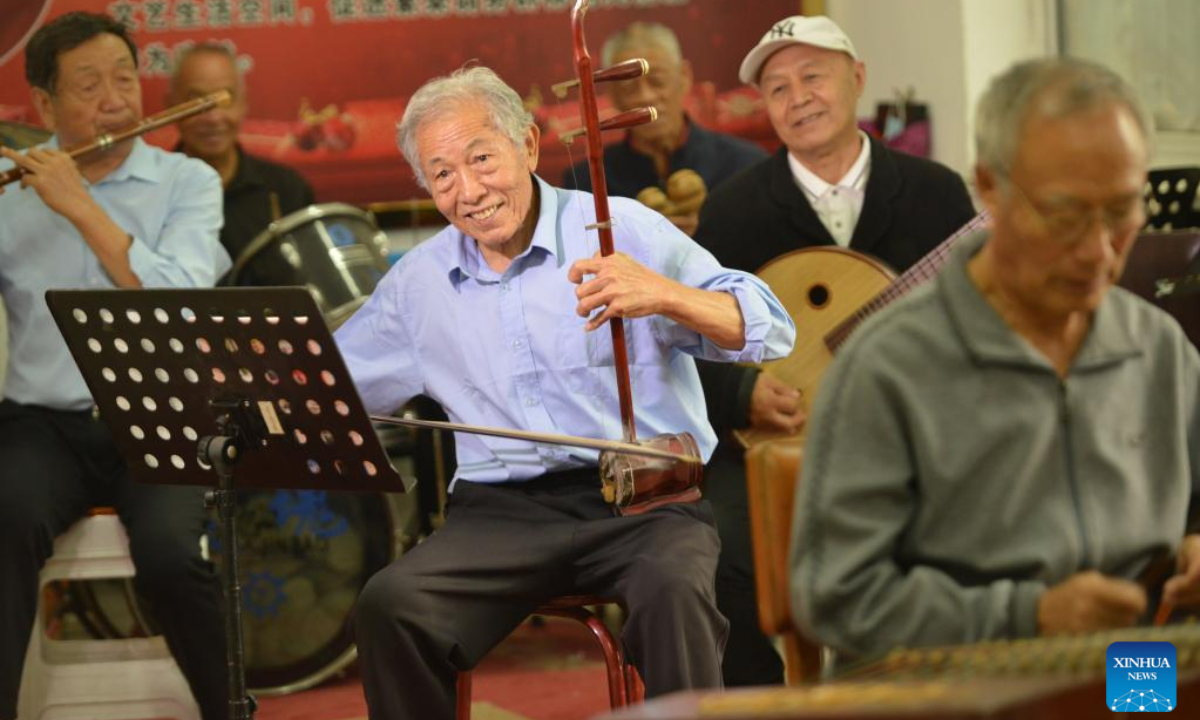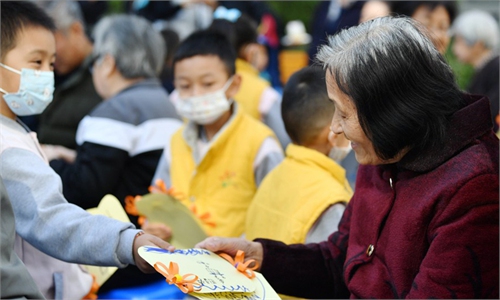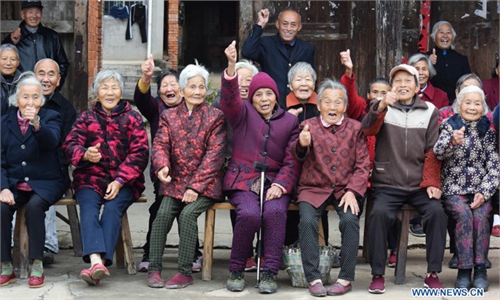
Liu Mingfei (C), 80, plays Erhu, a Chinese musical instrument, in a band in Luancheng District of Shijiazhuang, north China's Hebei Province, Oct. 2, 2022. Chinese elderly enjoy retired life as they indulge in their hobbies. (Photo by Yan Zhiguo/Xinhua)
China's Ministry of Education released a notice on Thursday that it has decided to set up a national university for the aged, a move that experts believe is intended to cope with the aging society and build a lifelong learning society.
According to the notice, the plaque of the National University for the Aged will be unveiled and merged with the Open University of China - a lifelong school for adult learners.
The Open University of China is not only an educational entity, but also an educational system covering both urban and rural areas of the country. It is composed of one headquarters in Beijing, 45 branches and 3,735 learning centers, according to the official website of the university.
On the basis of the Open University of China, the National University for the Aged is a national education resource-sharing platform for senior citizens, with their students aged 60 or above and their curriculum extensively ranging from foreign languages, computer skills, music and dance to photography, painting, sports, cooking and other crafts and skills.
Considering the better physical condition of senior citizens and their extended life expectancy, care for them should not be limited to material security and medical insurance. Providing education for them is one aspect of enriching their spiritual lives, Zhu Wei, a professor from the China University of Political Science and Law, told the Global Times on Thursday.
Figures from the National Bureau of Statistics show that the population aged 60 or older amounted to 267 million in 2021, accounting for 18.9 percent of China's total population. It is expected by China's National Health Commission that China will be a moderately aging society in three years with 20 percent of the population aged 60 years and above, and become a severely aging society by 2035, when 400 million people are 60 years and above, accounting for 30 percent of the total population.
Experts believe the latest move is a positive response to the aging society.
Senior citizens take the courses for enjoyment rather than purely to improve their skills or to become employed, Xiong Bingqi, director of the 21st Century Education Research Institute, told the Global Times on Thursday.
Separately, crimes including telecom fraud targeting the elderly are increasing, creating an urgent need to popularize the knowledge in this field among the elderly, Zhu said.
Zhu pointed out that it is more common at present for the elderly to learn from the internet, such as through short video platforms with fragmented information and even rumors.
Given that lifelong learning is a basic view of Confucianism, facilitating systematic education for senior citizens can help build an age-friendly society, Zhu said.
According to the China National Committee on Aging, there were more than 76,000 universities for the elderly across China as of February with registered students of over 14 million. Based on statistics from the National Health Commission showing that the elderly population aged 60 or above amounted to 267 million as of the end of 2021, only 5 percent of senior citizens aged 60 or above can receive an education.
According to the national planning for the development of the aging cause and nursing home service system released by the State Council, China's cabinet, every county (city, district or banner) has to have at least one university for the elderly by 2025.


